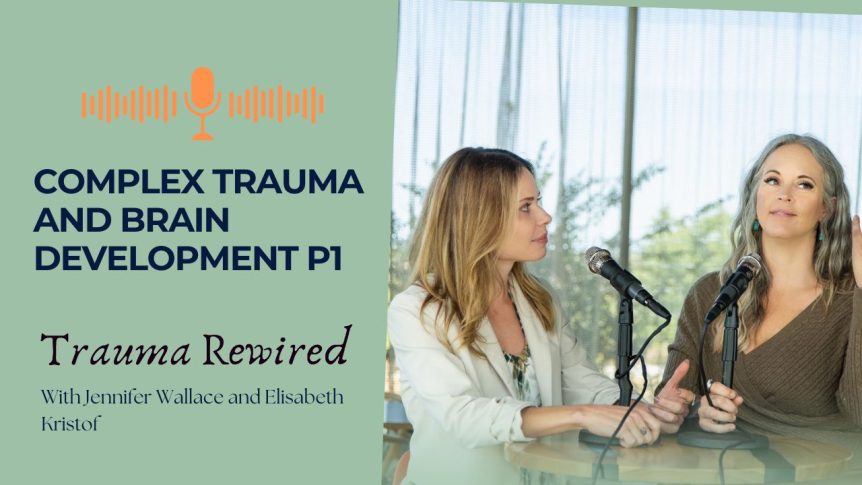Episode 44
Imagine all of your childhood experiences as a pool of water. All your relationships, experiences, emotions and memories become this water that you’re swimming in. What does the water look like? How does it feel against your skin? Can you swim or do you struggle to stay afloat?
At the most basic level Trauma is an overwhelm of the system – the nervous system.
Trauma overwhelms our capacity to cope with our thoughts and feelings as well as the outside world.
From a Neuro-Somatic Intelligence perspective, this inability to cope means that the intensity of a stimulus or experience is such that the nervous system, brain and body cannot adapt to a stressor in a healthy, integrated way.
When we experience repeated traumas during the developmental years of childhood it can lead to Complex Trauma, also known as C-PTSD. It’s a physiological result of living through events, stimulus and situations that are overwhelming physically, mentally and emotionally.
Think of it as the water that we were swimming in during childhood development.
To cope and survive in the threatening environments where our needs for physical safety, attachment as well as emotions weren’t met, the brain reshapes the nervous system in order to survive.
This is how the developing brain is changed by trauma.
In this Part 1 episode we discuss the ways our brains have been impacted by Complex Trauma with Matt Bush, Neuro-Somatic Intelligence educator and founder of Next Level Neuro.
How our nervous system is wired for survival is brilliant and beautiful in a sense. However, these survival driven changes cause long term imbalances in our brains and bodies. It affects our brain function, posture, movement abilities, emotional expression and our hormones. These changes during the developmental years keep us from being able to adapt to stress or integrate memories and emotions.
“Trauma is the inability to integrate and regulate into the present moment. That is what creates the dissociation, disconnect, the inability to process emotions, feelings, thoughts, inability to speak – it shows up in all kinds of ways,” says Matt Bush, founder Next Level Neuro and co-lead instructor of the Neuro-Somatic Intelligence certification.
In talking about the long term neurological impacts of trauma, it is critical to look at integration. The inability to integrate scattered memories and big emotions is what causes so much internal havoc in people with Complex Trauma. Integrating memories and emotions in Minimum Effective Doses is the key to repairing and regulating the nervous system.
The ultimate intention of Neuro-Somatic Intelligence tools is to help people integrate- to feel safe in their bodies and be present regardless of their environment. NSI tools help you build a nervous system bubble of safety by teaching how to regulate each part of your nervous system using a Minimum Effective Dose method.
In Part 2, we discuss what it means to integrate our memories and emotions into our daily lives and how to actually do it using Neuro-Somatic Intelligence tools. Be sure to listen.
Matt Bush joins us to explore all of this in the most recent episode of Trauma Rewired: Trauma and the Developmental Brain.
Listen to more episodes of Trauma Rewired HERE


